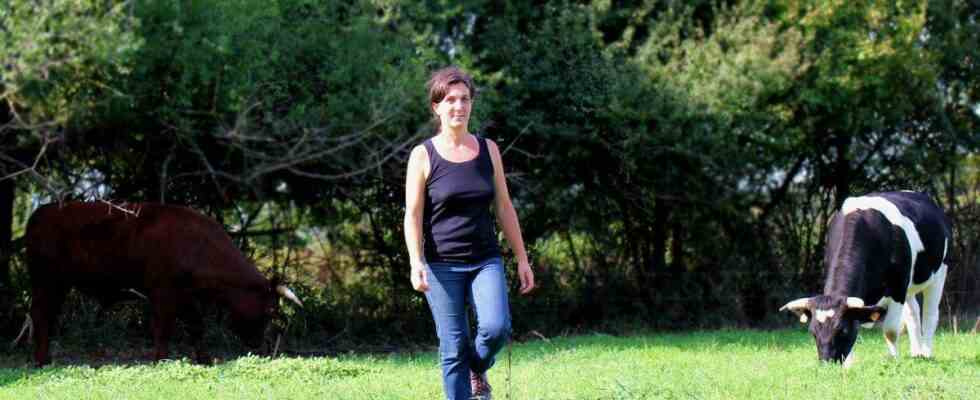She is a bit of an UFO. An “unidentified peasant object”. After years of practicing in the social and solidarity economy, Amande decided to venture into a crazy project. That of embarking on the takeover of a lost farm in the Breton countryside to raise cows and pigs there. If the project she carried out with her husband Damien is surprising, it is that neither the young woman nor her husband had any experience in agriculture. Not even an uncle market gardener or a grandfather of the trade. Nothing nobody. Even more surprising is the choice of this openly ecological couple to embark on breeding often criticized for their carbon footprint. Especially when we learn that Almond was a vegetarian for a long time before returning to a (small) consumption of meat. And to rush headlong into a world that was foreign to him.
Whereas Space has just opened its doors in Rennes, the question of the transmission of farms is on everyone’s lips. In the spans of the great livestock fair, the retirement of half of French farmers by 2030 worries everyone. However, the profession is still struggling to open up to “newcomers” like Amande and Damien. They spent years finding a farm that suited them, while agreeing to move more than an hour’s drive from their friends. “There is never a perfect farm for your project. But we felt that in the eyes of some, we were not credible. Some sellers have told us that they would be ashamed if we failed. We were told in the eyes: it has to work. We positioned ourselves several times and we weren’t selected. There are times when we said to ourselves that we would not succeed, ”says the young woman.
“At home, the cow sacrifices herself to keep a whole biodiversity”
After several refusals and years of waiting, the couple took the time to train and found a cow breeder who agreed to sell them his property in Tresboeuf, halfway between Rennes and Châteaubriant (Loire-Atlantique). “He accepted that we sell his cows to carry out our project, he was open. The couple now owns around fifty head of the Armorican breed which they graze in their grassy fields. Six months after the arrival of the cattle, Amande and Damien saw their first animal go to the slaughterhouse on Monday, that they will offer for direct sale. “It’s not the best moment in the business, but there was a bit of pride. With us, the cow sacrifices herself to keep a whole biodiversity. We replanted hedges, we don’t work the soil, we don’t treat. With our meadows, we offer preserved spaces,” explains Amande.
For this former vegetarian, the question of meat consumption has long arisen. If she now eats “a little”, she refuses to praise it, pleading for diversified agriculture. “The question of meat is more complex than saying whether it is good or bad. What is needed is diversity. And above all, to prevent farms from constantly expanding for lack of a buyer. In a few months, she and her companion will start raising pigs in the open air. They also plan to plant an orchard and fruit trees in order to diversify and not depend only on an income. A shift that many “new” farmers have undertaken to avoid losing everything during crises in this or that sector.
Sensitive to the issue of transmission, Amande would like to serve as an example for other projects. In particular, she would like the administration to be more open to collective projects led by several families. But she is worried about seeing the barriers erected against the younger generations. “It’s such an administrative headache! You have to be super zen because the administrations do not talk to each other. There’s enough to drown in.” And get discouraged too.

